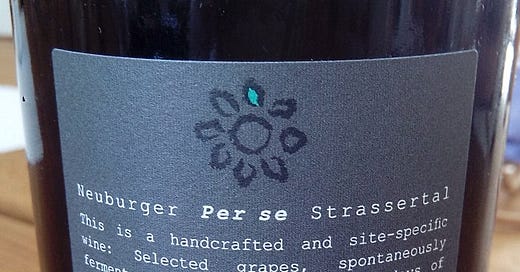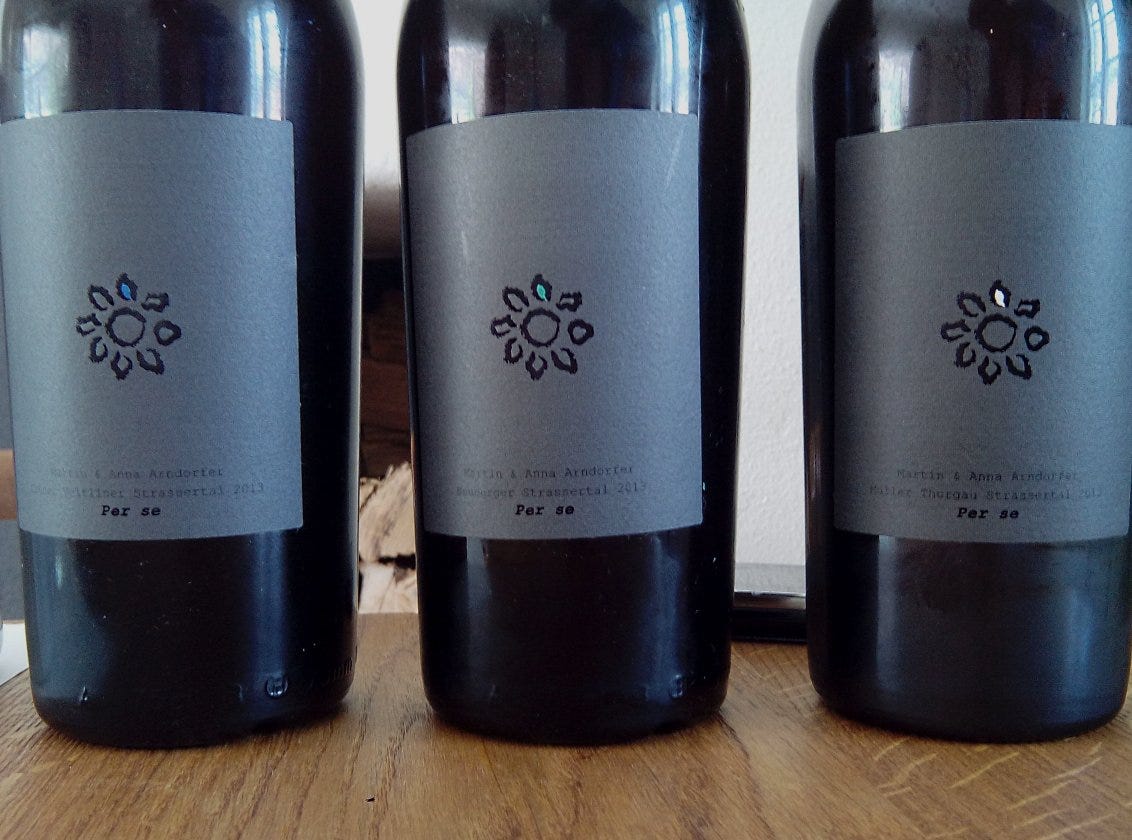Arndorfer - Neuburger "per se" 2013
The story of how a Danish importer prompted a Kamptal based grower to make their first orange wines.
I've heard many stories about why winemakers have returned to traditional skin maceration for white wines - or why they were inspired to experiment with the style. But Martin Arndorfer's is quite unique: "It was actually my Danish importer who suggested I start making an orange wine - his clients were demanding the style, and he felt it could work well with the terroir and the grape varieties we have here".
The Arndorfers began experimenting with extended skin contact in 2012, making three varietal wines - and thus immediately confounding the notion that orange wines cannot show varietal character. It's easy to pick out the different characteristics of their Müller-Thurgau, Neuburger and Grüner Veltliner "per se", but for me there was a clear winner.
Keep reading with a 7-day free trial
Subscribe to The Morning Claret to keep reading this post and get 7 days of free access to the full post archives.





